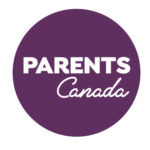Health
7 min Read
Do you vaccinate your child? Two moms and an expert weigh in

February 11, 2014
Health
7 min Read

February 11, 2014

We received a lot of emails about this article after it was first published in our February/March 2014 issue. Many readers decried that we gave voice to a “con” side of vaccination, or that we called it a “debate” on our cover. In our April issue, we explained why we took presented parents with opposing views in the following Editor’s note:
“ParentsCanada supports routine immunization. However, research shows that parents who question immunization become more entrenched in their views when their uncertainty is not acknowledged. Hence, a “con” side was presented.”
What that means is that when parents are judged harshly for not vaccinating or delaying vaccination, it’s doesn’t persuade them to change their minds. Rather, it makes them question even more. Research says a measured approach to educating on the merits of vaccination is required. That was our intention. – Janice Biehn, Editor
Or maybe it’s because I heard my husband’s story. Vaccinated as an infant, he was in the minority of children who somehow still developed pertussis (whooping cough). I’d heard the family lore of his bone-shaking bouts of coughing. So why would I want my own children to be at risk for pertussis, plus 12 other clearly preventable diseases?
I embarked on my parenting career needing help from a breastfeeding clinic and lactation consultant. After finally (finally!) nailing that latch, I nursed for a year. So the logic didn’t compute: why would I pour all those tears and time into building my child’s immunity through the benefits of breastfeeding and then compromise it by putting her at risk for developing the very diseases our society has worked to eradicate?
The Ottawa-based Public Health Agency of Canada reports that children who aren’t immunized against measles are 22 to 35 times more likely to contract it. And whooping cough? Six times more likely. Those numbers jump even higher for children under 11 years (62 times more likely to develop measles and 16 times more likely to develop pertussis).
I also felt I bore the responsibility of other children, because clearly not everyone makes this a consideration. Unicef’s “Child Well-Being in Rich Countries: A comparative overview” 2013 report says that of 29 nations surveyed, Canada ranked second last in number of children immunized. Nearly 10 percent of Canadian children do not receive immunizations.
I remember back in university we were welcomed into residence with a safe sex talk. We were presented with charts visually outlining how many other people you slept with if you had unprotected sexual relations with someone. Same scenario applies with immunizations. I feel like sending an unprotected child into the world not only puts my child at risk, but possibly endangers all of those peripheral people on the chart. And how can I possibly do that?
When my kids get sick, I offer gentle strategies to help them heal. At 10 and fi ve, they have not been routinely vaccinated or had antibiotics or fever-reducing medications – which doesn’t mean they never will, only that thus far their bodies, with supportive measures, have managed.
I don’t believe that vaccines cause autism. I don’t think they are ineffective. I don’t worry that my children will be poisoned by additives. And, while not discounting the bias that exists in pharmaceutical research and development, I don’t claim it’s a conspiracy. Vaccines have saved and continue to save many lives around the world.
But I do believe we are not healthier for it.
One cause of morbidity and mortality has been exchanged for others, including the increase in allergies associated with a lack of routine infections. Kids exposed to germs (in the context of clean water, good food and access to health care) are better off for it in the long run. And yet we attempt to dominate all potentially harmful microorganisms through a staggering number of vaccines, anti-microbial cleaners and drugs, enabling the evolution of highly-virulent “superbugs”.
I honour the value of vaccines in some situations, but wonder if a more selective use of these heroic approaches might help us swing back toward a balance. In this model, health-care providers would obtain true informed consent for individual vaccines rather than pressuring families to universally vaccinate through the use of scare tactics. Our bodies have mechanisms to identify and clear most damaging microbes. When sound hygiene practices are followed, good nutrition is available, stress levels are manageable, there is access to and choice in both preventative and reactionary health care, and society creates the opportunity to “get sick well” (allowing the body to respond to infection as it evolved to, as opposed to suppressing symptoms and attacking the infectious agent), our children’s bodies can usually handle it. A barricade need not be built up around them.
I can provide my children with the building blocks for good health. They are robust and bright and get sick well. Perhaps they would be just as healthy had we followed a recommended vaccination schedule, but I feel good about our choice.
Every few minutes, a life is saved by immunization. Somewhere someone is living a healthy life that they would not have been able to enjoy; a parent is cuddling a child who would not be there if we did not have vaccines. If the millions of children who died from diseases that we now prevent could speak, we would be surrounded by shouts of support.
Not very long ago in countries like Canada, infections such as tetanus, whooping cough, diphtheria, measles, rubella and meningitis were having a devastating impact on parents and children. My own grandmother lost healthy twins to whooping cough. But memories of those days are fading, so it’s no wonder that some parents question why immunizations are still necessary. It’s a sign of a healthy society that these questions can be asked. The simple answer is that if enough parents stop immunizing, diseases come back with a vengeance – we know because this is happening today in Syria.
Some parents believe that if their children are healthy they don’t need to be vaccinated. Although vaccine-preventable infections may be worse in children who have other health problems, they most often kill completely healthy children. For example, a healthy unvaccinated child can get tetanus from playing in their back yard. Also, the idea that immunization makes children weaker has no basis in fact – scientific research shows that immunization makes children stronger.
Vaccines are not mandatory anywhere in Canada. Those who choose not to immunize may be lucky in the short-term because most other children are vaccinated, so their kids will be protected by everyone else. Those choosing to immunize benefit from the knowledge that their own children are protected and their families are part of healthier communities in which we all help each other to be protected from these devastating diseases. I think that is the kind of world in which I prefer to live.
Click here for an immunization schedule.
Originally published in ParentsCanada magazine, February 2014.